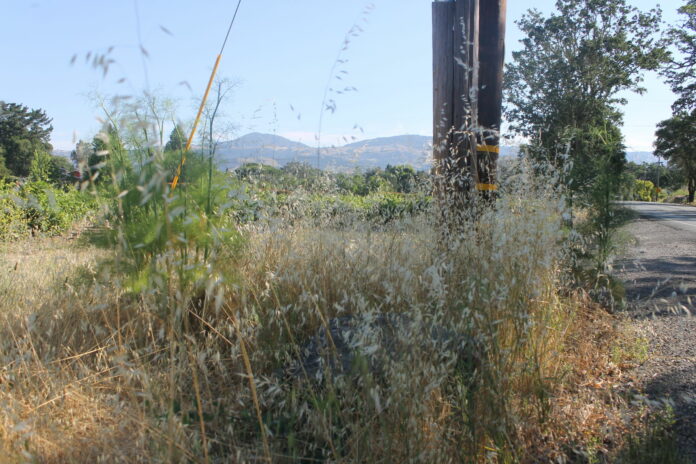Resolution applies only to county lands and departments
When Fifth District Sonoma County Supervisor Lynda Hopkins was running for office, she made a promise to end pesticide use by county departments and agencies.
On June 4 that promise came to fruition when the Sonoma County Board of Supervisors voted unanimously to pass a resolution banning synthetic pesticide use on county property.
The resolution also establishes no-spray zones in county-owned areas such as plazas, playgrounds, parks, sidewalks and county campuses like libraries.
The resolution will apply to all county departments and agencies, including Sonoma County Water Agency, Ag Preservation + Open Space District, the Community Development commission, county transportation and public works, general services and regional parks.
According to Hopkins, the resolution also directs staff to create a map and publish a list of all of the no spray zones by the end of the year.
“This is very significant,” Hopkins said. “It’s important for the government not just to talk about things, but to take action.”
Meg Kaun, a member of the Sonoma County Conservation Action who spearheads the groups’ Toxic Free Future Campaign, echoed Hopkins’ thoughts:
“I think this is quite significant … I did a records request and they (the county) were using this stuff all over the place: parks, schools, cities, etc. This is a big step forward,” Kaun said.
Both Kaun and Hopkins said both residents and supervisors seemed to strongly support the resolution.
Kaun said there was standing room only at the Tuesday meeting and that there were a lot of positive comments from the supervisors regarding the ban.
District 1 Supervisor Susan Gorin, a co-sponsor of the resolution, gave credit to Hopkins and Sonoma County Conservation Action.
“This is a product of Lynda’s passion. I also want to recognize Sonoma County Conservation Action. They were instrumental,” Gorin said.
Hopkins said the resolution will prioritize mechanical removal and the use of organic as opposed to synthetic pesticides.
Hopkins said, as an organic farmer of 10 years, she was always committed to staying away from synthetic pesticides, and both Gorin and Kaun said there are a lot of great organic alternatives.
Gorin said one of her constituents sent her a recipe for eradicating weeds with a main ingredient of vinegar.
“It is easy to find alternatives,” Gorin said.
She added that she also uses mechanical weeding, which often seems to have the most success.
“There are a lot of organic materials on the market that are semi-successful. Usually with that, you have to spray the plant when it’s little. It is a little finicky,” Kaun said.
With the resolution already in effect, Hopkins said the county will be testing certified organic alternatives for weed control on areas such as roadsides.
It will also direct staff to commit to annual public reporting of pesticide use to help ensure accountability and transparency.
Despite the victory, Kaun emphasized the need for more work to be done.
Kaun said Sonoma County Conservation Action is working with the city of Rohnert Park, Cotati and Cloverdale to try to encourage and create formal and informal policies on pesticide use in public places.
According to her, Petaluma and Healdsburg have verbal policies on pesticide use, but no codified policies.
“We want to keep the conversation going on pesticide use, especially in agriculture and in vineyards,” Kaun said.
54.6
F
Healdsburg
January 6, 2025








